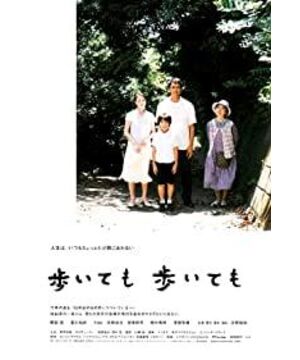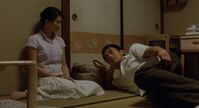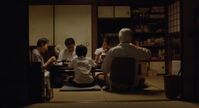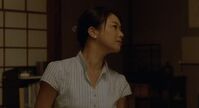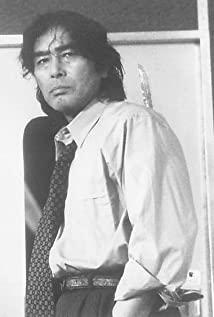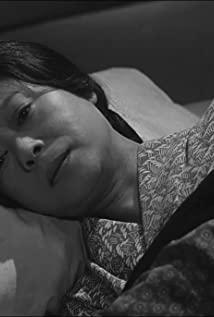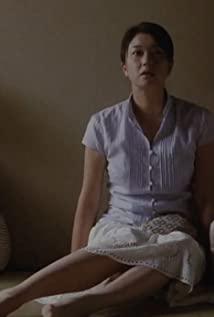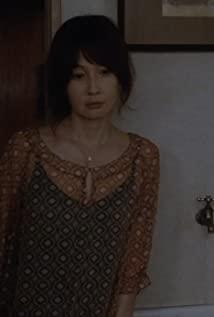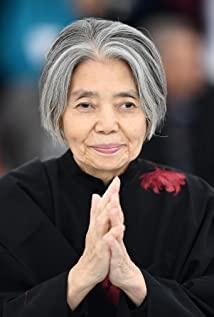"Walking Nonstop" tells the story of what happened in a day when many families returned to their hometown to participate in the worship of the elder brother Junpei.
"It was only later that I found out that this day was the last opportunity for our family to get together to take pictures. After that, Amu couldn't come because of a cold, and the next year, my sister and the family of four went to Hawaii. In the spring of three years, my father was suddenly at fault."
A stubborn father, a mean mother, a sister's family like a softener, and many families who are not recognized are gathered together on this day.
Father Gongping is a doctor who has been retired for three years, and his elder brother Junping is not only the eldest son, but also has excellent grades. He was successfully admitted to the medical school and is the prospective heir to his father's clinic. In the light of the elder brother, the younger brother Liang Duo looked much bleak, and gradually gave up the dream of becoming a doctor. And from a certain moment, he deliberately chose a different path from his brother. Now that someone has inherited his father's clinic, many of them are doing what they like without any burden. They are admitted to the Academy of Fine Arts and become an oil painting restorer.
Many got married at the age of forty and became the father of a primary school boy, Atsushi. Yes, he has a family with a single mother. At the same time, many also lost their jobs this year. Even before that, his wife Yukali's income was much stronger than that of many. Many said that he was a soft eater, but he didn't mind. On this day, Yukari concealed his unemployment for many.
"For that kind of useless guy, I sacrificed my family's ... as much as I can for him."
The eldest brother Junpei lost his life fifteen years ago when he rescued the drowning child Ryoo.
On this day every year, Liangxiong would come to worship. He was hunched over, sweating nervously, and many said to his mother, "Don't ask him to come again." The mother insisted that "we make him suffer once a year". For Liangxiong, this kind of suffering is only once a year, but for his parents, it is every day.
It's Hirokazu Kore-eda's films that are often said to "depict loss", but he prefers to "describe those who are left behind". The Kyouhei family were left behind, as were Yukari and Atsushi. (Yukari's ex-husband, Atsushi's father, passed away three years ago.)
The rabbit in Atsushi's class died. When everyone cried and said goodbye to the rabbit, Atsushi snickered because his classmate said he wanted to write to the rabbit. Yes, "who is it written for?"
The depth of grief is independent of age.
Many people who are "not doing a proper job" are not recognized by their father, and they don't know what to say to their mother, and their relationship with their parents is not so harmonious. They even want his wife Yukari to act as a villain and reject the mother's request for them to stay at home for the night.
On this day, nothing decisive happened. He only vaguely felt that many things had been quietly brewing under the water.
The heavy riding machine was moved to the second floor by my brother-in-law Nobuo to help my mother. Glittering anti-slip rails, old bathrooms, dark discolored bathtubs, shards of wall and floor tiles piled up beside drains all suggest that everything is changing.
In the year my father opened the clinic, he planted a 100-day red, maybe that's why, my father cherished this 100-day red. But my mother always said "the colors are not as bright as they used to be".
"What about the pulse? What is it now?"
The ambulance crew didn't answer his father's question, presumably treating him as a crowd watching the fun. The father pointed to the sign of the clinic behind him, trying to prove that he was a doctor. He desperately wanted to say something, but he didn't say that "I'm a doctor" in the end. He reluctantly watched the ambulance leave, and said goodbye to the auntie across from him—farewell to the former patients, and also He had to slowly accept and say goodbye to the job he was proud of in his life - a doctor.
My father sees work as everything in life. "Life is not just about pursuing success in career", in his opinion, it's just a barking dog. The big brother who has always been talked about is the ideal standard, while many are "bereaved dogs" in comparison. Perhaps this is the source of many disagreements with my father.
Obviously, his father was not able to criticize Liangxiong's advertising work, but many of them hid the truth in the dialogue with his father. He said, "I mean, don't compare other people's lives... He also desperately living."
On the second day of my eldest brother's death, my father, Lanta and Junpei went for a walk by the sea. There is some distance in front of and behind each other. In the steeper place, my father's footsteps slowed down, and his rapid breathing could be heard, and his entire forehead was covered in sweat. He fought his life to catch up with Atsushi, but he didn't seem to let anyone notice it.
"I don't know exactly when and where this couple started to go wrong."
Many mothers are traditional Japanese housewives, who do not go out to work for a day, and spend their whole lives revolving around the family. My mother is always thinking about a lot of unmarried things, and always calls and cares about a lot of marriages.
"Since you want me to get married so much, you can let me see how happy married couples can be."
This sentence seemed to hit her mother's sore spot, and her mother fell silent, "You're too much...".
After my father retired, the status of the family seemed to be reversed.
The words "I like my grandmother's house" said by my sister's child can make the father unhappy.
"Obviously this is the home that I have worked hard for, how can it be called my grandmother's home?"
The father always "hides" in his clinic, how can the children think this is "Grandpa's house"? At dinner that day, the mother also revealed that the father cheated when he was young. The father immediately ran away from the table and just wanted to hurry to the bathroom to be alone.
The most vicious person in the family turned out to be the mother. Whether it was punishing Liangxiong or ridiculing his father, the mother's blade was always the sharpest and hard to detect.
Even so, after her father died, when she saw Huang Die, although her mother didn't say anything, she knew that she would still miss her father.
Later, his father and mother died one after another. Even though many years passed, his remorse for his parents could not be dispelled. "If it was back then...", "If it were me now..." This kind of thought always strikes a lot of people's minds. I didn't let my mother get in my car, I didn't go back to visit my mother more...
Maybe life doesn't stop, and there is always a little bit of time.
It's not a heartwarming tale of a model family, it's a little spicy without being choking, a little bitter without frowning. Its warmth is like punching a hole where the sea meets the sky, and the sea flows slowly like this.
postscript
It was Hirokazu Koreeda who did not describe how much he missed his father after his death. I think so too, do you miss the torment your father has given him all his life?
Their conflict never reconciled, it just ended with the death of their father. People always say "everything will be fine". I don't think so, how could it get better naturally, it just ended naturally.
"It doesn't always get better, but it always ends."
When this manuscript was about to be completed, I went back to my grandmother's (grandmother's) house, sometimes I would say it was my grandmother's house. My grandmother changed her dentures, she would take them off and wash them after every meal, and by the way, she would urge me to rinse my mouth. Many teeth are also "cared for" in this way. However, many of them excused themselves from being busy with work, so that it took a while to cure the tooth decay.
The theme of "Never Stop" - "Life is always a little too late" was brewing, so after the death of Hiro Koeda and his mother, it was almost a mourning for his mother. During the filming, he tried his best to restrain his sadness to prevent it from being a bad film.
I've always wondered, what went wrong?
"If I hold her firmly at a certain turning point", "If I am smarter", countless ifs, countless missed opportunities, but in fact, it's too late.
"In these days of constant loss. If I have gained something, it should be: there is always a little bit of time in life - such a lesson that is almost a fate."
Goodbye mom!
View more about Still Walking reviews


